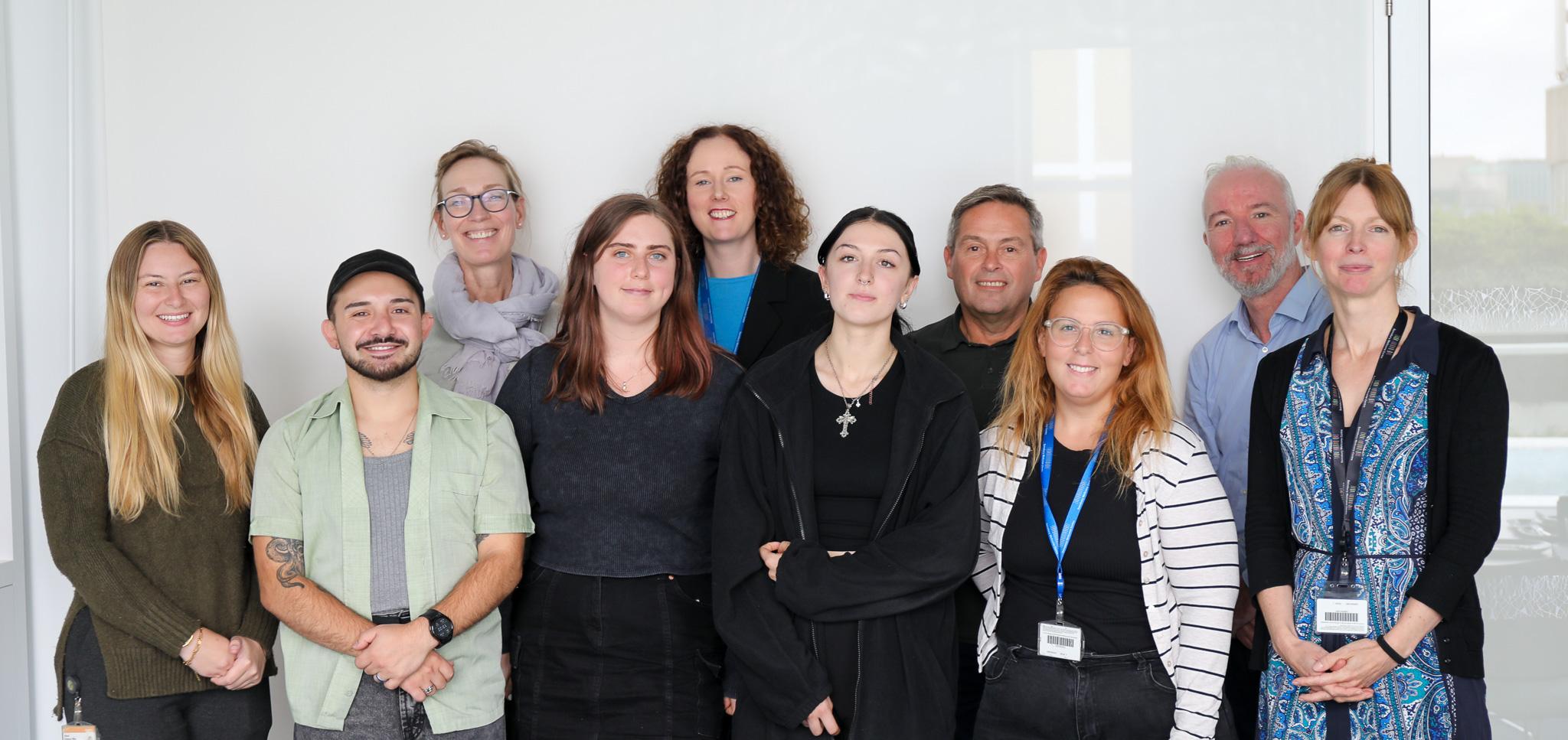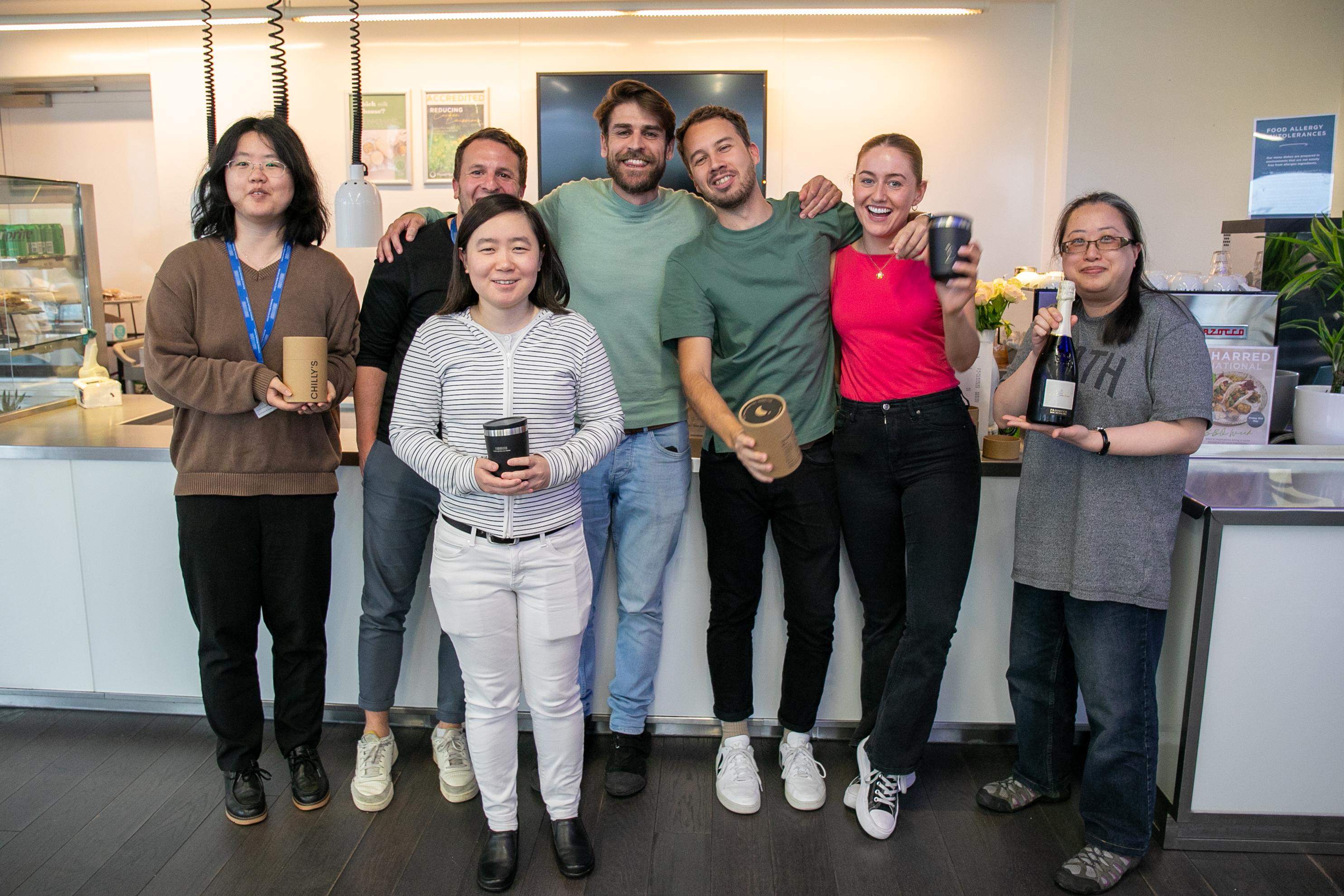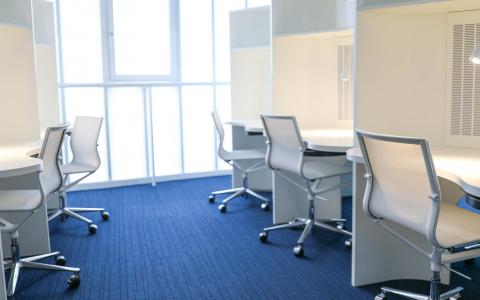
Making neuroscience sustainable: SWC’s Green Team leads the way
This year, the Sainsbury Wellcome Centre was awarded a fourth consecutive gold sustainability award as part of the Laboratory Efficiency Assessment Framework (LEAF).
The award is a significant recognition of SWC’s sustainability efforts, but in fact SWC goes above and beyond the LEAF criteria, reaching even higher standards for sustainable practices in laboratory research.
This accomplishment reflects the exceptional work of the laboratory management team, the building operations team, and the SWC Green Team, led by Eve McLoughlin.
The Green Team has a broad range of members from across the SWC professional services and research teams. They meet regularly to interrogate and challenge the way we carry out our research and how we operate our building and facilities.
In addition to the LEAF criteria, together the Green Team have focussed on three areas in 2024; staff learning and engagement, optimising the building operation systems, and collaborating with building design engineers to share the constraints and opportunities of our building and to positively influence future designs.

Laboratory-based research is essential for advancing science, but it is also extremely energy and resource-intensive. It’s estimated that laboratories are responsible for around 2% of global plastic waste and use 3-10 times more energy per meter squared than a typical office.
Eve McLoughlin, Centre Laboratory Manager, said: “To improve our sustainable efforts we need to understand the underlying issues. In 2024 the team has focussed on learning the rationale behind maintaining the status quo so that we are better prepared to challenge it.”

Staff learning and engagement
To better understand the everyday issues facing scientists and staff at the SWC when it comes to sustainability, the Green Team has undertaken engagement initiatives throughout 2024.
In May, they ran a successful quiz night based around environmental and sustainability issues. Staff from across the building were challenged to correctly identify a range of laboratory, office and everyday waste routes. The results provided the Green Team with a baseline of staff knowledge and indicated gaps in awareness.
Following the quiz, new and clear signage was installed at all waste and recycling points in the SWC building. A targeted campaign to encourage people to recycle now covers the specific gaps in understanding. This has contributed to SWC being in the top 10 best performing buildings for recycling at UCL.


Optimising Building Operations Systems
A key goal of the Building Operations team is to provide an effective and efficient environment to work. The team are committed to constantly reviewing their systems and processes for optimal operation of the building. In 2024 the team focussed on the Heating, Ventilation, and Air Conditioning systems which contribute to approximately 60% of the building’s energy usage.
One of the most effective ways to reduce energy usage is to power down systems when they are not needed. After consultation with the building users, the team were able to reduce the hours that the ventilation system operates, resulting in immediate energy savings. This adjustment aligns ventilation schedules with actual occupancy levels, cutting unnecessary power usage without compromising comfort or air quality.
The team further enhanced this by installing purification units in several areas. This smart system identifies periods of low occupancy, and allows energy usage to be further reduced, linked through the building management system.
Looking ahead, the team have partnered with the UCL on-site engineering team, ARTIC, to perform an in-depth energy review of the SWC building. The aim is to introduce a fresh perspective to help pinpoint further ways to reduce energy usage and cut down on carbon emissions.

Engaging with Building Design Engineers
To share their findings on how the building operates, Eve and Doug Ward, Head of Building Facilities and Compliance, have worked with multiple building design engineers and architects. Through highlighting their experiences and challenges, they hope that in the future, research institutes can be designed to operate more sustainably.
Eve presented to the ARUP engineering firm to discuss the sustainability challenges in managing a lab space designed with flexibility in mind. She also contributed to a webinar on the challenges of future-proofing sustainable spaces for life sciences.
The SWC team have hosted visits from UK-based and international architects and developers, keen to learn about the challenges faced in operating flexible and adaptable laboratory spaces that are both sustainably and financially viable.
Doug is now collaborating with a team of design engineers who will analyse our building informatic data, helping to identify areas of opportunity both for the SWC and future building designs.
Doug said, "Our approach to sustainability is to encourage SMART and responsible building strategies. This is a combination of project planning and technical innovation to reduce unnecessary energy consumption and carbon intensity within the building. We aim to meet the sustainability targets set by UCL, by achieving the UCL Sustainability Development Goals".


